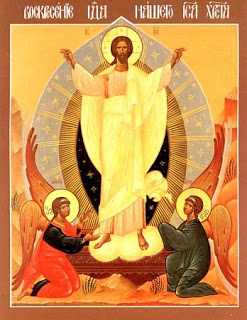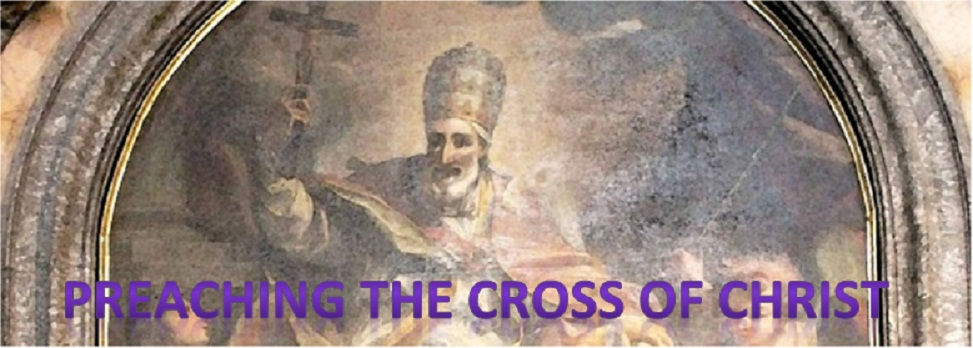|

The Embassy of Faith International Core Beliefs and Doctrines
Baptismal Covenant
"Do you reaffirm your renunciation of evil and renew your commitment
to Jesus Christ?" (Book of Common Prayer, p. 292).
A mini catechism used at baptisms and on Easter and other
special occasions, the Baptismal Covenant opens with a question-and-answer version of the statement of faith that is the Apostles’
Creed and adds five questions regarding how we, as Christians, are called to live out our faith.
The Bible
"Blessed Lord, who caused all holy Scriptures to be written for our
learning: Grant us so to hear them, read, mark, learn, and inwardly digest them" (Book of Common Prayer, p. 236).
It is our foundation, understood through tradition and reason, containing
all things necessary for salvation. Our worship is filled with Scripture from beginning to end. Approximately 70% of the Book
of Common Prayer comes directly from the Bible, and Episcopalians read more Holy Scripture in Sunday worship than almost any
other denomination in Christianity. (See Revised Common Lectionary of readings.)
Book of Common Prayer
"It is a most invaluable part of that blessed ‘liberty wherewith
Christ hath made us free,’ that in his worship different forms and usages may without offence be allowed, provided the
substance of the Faith be kept entire" (Book of Common
Prayer, p. 9).
The Book of Common Prayer is a treasure chest full of
devotional and teaching resources for individuals and congregations, but it is also the primary symbol of our unity. We, who
are many and diverse, come together in Christ through our worship, our common prayer.
The Catechism
"It is a commentary on the creeds, but is not meant to be a complete
statement of belief and practices; rather, it is a point of departure for the teacher" (Book of Common Prayer, p. 844).
Offered in a question-and-answer format, the Catechism found in the
back of the Book of Common Prayer (pp. 845-862) helps teach the foundational truths of the Christian
faith.
Christ-Focused
“In him you have brought us out of error into truth, out of
sin into righteousness, out of death into life” (Book
of Common Prayer, p. 368).
As Embassy Episcopalians, we are followers of Jesus Christ, and
both our worship and our mission are in Christ’s name. In Jesus, we find that the nature of God is love, and through
baptism, we share in his victory over sin and death
The Creeds
“The Creeds are statements of our basic beliefs about God” (Book of Common
Prayer, p. 851).
We will always have questions, but in the two foundational statements of faith –
the Apostles’ Creed used at baptism, and the Nicene Creed used at communion – we join Christians throughout the
ages in affirming our faith in the one God who created us, redeemed us, and sanctifies us.
Holy
Baptism
“Holy Baptism is full initiation by water and the Holy Spirit into Christ’s
Body, the Church” (Book of Common Prayer, p. 298).
In the waters of baptism we are reminded that we belong to God and nothing can separate
us from the love of God. We also find ourselves part of an extended family, one with Christians throughout the ages and across
the world, what we call the “one, holy, catholic [meaning 'universal'], and apostolic Church.”
The Rite of Holy Baptism can be found on pp. 297-308 of the Book of Common Prayer.
Holy
Communion
"We thank you ... for assuring us in these holy mysteries that we are living members
of the Body of your Son, and heirs of your eternal kingdom" (Book of Common Prayer, p. 366).
It goes by several names: Holy Communion, the Eucharist (which literally means "thanksgiving"),
mass. But whatever it’s called, this is the family meal for Christians and a foretaste of the heavenly banquet. As such,
all persons who have been baptized, and are therefore part of the extended family that is the Church, are welcome to receive
the bread and wine, and be in communion with God and each other.
The
Sacraments
“Sacraments are outward and visible signs of inward and spiritual grace” (Book of Common
Prayer, p. 857).
Besides baptism and the Eucharist (Holy Communion), the church recognizes other spiritual
markers in our journey of faith. These include:
· Confirmation (the adult affirmation of our baptismal vows), pp. 413-419, Book of Common Prayer
· Reconciliation of a Penitent (private confession), pp. 447-452, Book of Common Prayer
· Matrimony (Christian marriage), pp. 422-438, Book of Common Prayer
· Orders (ordination to deacon, priest, or bishop), pp. 510-555, Book of Common Prayer
· Unction (anointing with oil those who are sick or dying) pp. 453-467, Book of Common Prayer
These help us to be a sacramental people, seeing God always at work around us.
Spiritual
Growth
"Lord, make us instruments of your peace. Where there is hatred, let us sow love" (Book of Common
Prayer, p. 833).
The promises we make in our Baptismal Covenant are reminders that we are not yet perfect,
that we are called to move deeper in our faith and make a difference in our world. We do so together as the church, always
professing that we will indeed live into our baptismal vows as followers of Christ, but always “with God’s help."


Brief Dictionary of Terms
ANGLICAN
COMMUNION: Churches around the world that are in communion with each other and with the See of Canterbury, (i.e.,
Church of England) and that hold the same faith, order, and worship. According to the
Anglican Consultative Council, the Anglican Communion is composed of 38 autonomous churches together with a small group
of extra-provincial dioceses and approximately 85 million members. There are Anglican congregations or jurisdictions in more
than 160 countries.
ARCHBISHOP OF CANTERBURY: The
Primate of All England, Metropolitan of the Province of Canterbury, "first among equals" of all Anglican bishops, and the
spiritual leader of the Anglican Communion. The See of Canterbury was founded in 597 with the arrival of St. Augustine, who
established his first church in the town. The present Archbishop of Canterbury is the Most Rev. and Right Hon. Rowan Williams.
ASSISTING BISHOP: A previously
consecrated bishop who is appointed by a diocesan bishop with the consent of the standing committee and diocesan council to
provide additional episcopal services in the diocese for a specific term.
BAPTISM: One of the two sacraments
ordained by Jesus Christ. (Holy Communion is the other.) Holy Baptism is the sacrament of spiritual remission and regeneration
by water and the Holy Spirit. It is the rite by which persons are admitted into the fellowship of Christ and his church.
BISHOP: The third of the three
orders of ordained ministry (deacon, priest, bishop). The major functions are to preside over a diocese, consecrate to the
episcopate, ordain to the ministry, administer confirmation, and administer ecclesiastical discipline.
BISHOP COADJUTOR: A bishop
who is elected to assist the bishop of a diocese and upon the latter's death, retirement, or resignation, succeed the diocesan
bishop in office.
BISHOP SUFFRAGAN: A bishop
elected to assist the bishop of a diocese but without the right of succession to the office.
BOOK OF COMMON PRAYER: The
title of the book of worship of the Episcopal Church. The Book of Common Prayer contains doctrine that the church requires
to be taught and believed, and a collection of historical documents. It sets forth the standard authorized liturgical texts
used in the Episcopal Church. The most recent revision of the Book of Common Prayer was adopted in 1979.
CANON: A law of the church
set forth by an ecclesiastical council or convention. This term also refers to a person who is connected to a cathedral, usually
a staff priest, or a priest of some other high standing.
DEACON: The first of the three
orders of ordained ministry (deacon, priest, bishop). Deacons function in most liturgical and pastoral ministries –
not in consecrating the elements – and often assist priests in some way. Its institution is found in Acts 6:1-7.
DIOCESE: The territorial limits
of jurisdiction of a diocesan bishop.
EUCHARIST: From the Greek
word for "giving of thanks," this refers to the service of Holy Communion or the Lord's Supper as a sacrifice of praise or
thanksgiving. The sacrament of the Lord's Supper was ordained by Jesus Christ for the continued remembrance of the sacrifice
of his death. It may also be called the Mass, Divine Liturgy, Blessed Sacrament, or Holy Sacrifice.
EXECUTIVE
COUNCIL: This governing body carries out the programs and policies of General Convention between sessions of the General Convention. It may initiate and develop
such new works as it deems necessary. It is composed of 38 members: 20 members elected by General Convention (four bishops,
four priests or deacons, 12 lay persons), and two members elected by each of the nine provinces.
PRESIDING BISHOP: The chief
executive, primate, and spiritual leader of the church and the president of the Executive Council and House of Bishops. He
or she is elected by the House of Bishops with confirmation by the House of Deputies for a term of 9 years, and when elected,
he/she must resign his/her jurisdiction.
PRIEST: The second of the
three orders of ordained ministry (deacon, priest, bishop). The word is a shortened form of “presbyter,” or elder.
Priests officiate at any of the sacraments and services of worship other than confirmation, ordination, and consecration.
PROVINCE: A group of dioceses,
usually in the same region, whose bishops and delegates meet in synod annually or in those years when the General Convention
does not meet. A province is also a term used for a self-governing church body that belongs to the Anglican Communion, such
as the Episcopal Church or the Church of England.

|
